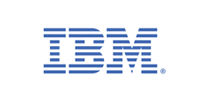
The adoption of cloud technologies is driving enterprises, big and small, to be more agile, innovative, and competitive, and to create differentiated customer and user experiences. This MicroBachelors Program will provide you with a broad set of skills and the technical aptitude to launch your career as a Full Stack Developer.
Read more
The adoption of cloud technologies is driving enterprises, big and small, to be more agile, innovative, and competitive, and to create differentiated customer and user experiences. This MicroBachelors Program will provide you with a broad set of skills and the technical aptitude to launch your career as a Full Stack Developer.
The adoption of cloud technologies is driving enterprises, big and small, to be more agile, innovative, and competitive, and to create differentiated customer and user experiences. This MicroBachelors Program will provide you with a broad set of skills and the technical aptitude to launch your career as a Full Stack Developer.
The Full Stack Cloud Applications Development MicroBachelors Program from IBM will teach you the tools and technologies that successful software developers, and web developers use to build, deploy, test, run and manage Full Stack Cloud Native applications – putting you in an advantageous position to begin a new career in a fast-growing field.
You do not need any prior programming experience or Cloud background to begin this program. The courses in this program will help you develop the skills needed for developing web and SaaS applications that are in high demand, including:
Cloud infrastructure, HTML, CSS, JavaScript, GitHub, Node.js, React, Cloud Native practices, DevOps, CI/CD, Agile Software Development, Containers, Docker, Kubernetes, OpenShift, Istio, Python programming, Databases, NoSQL, SQL, Django, Bootstrap, Application Security, Microservices, Serverless Computing, and more.
Your program experience you will also cover foundational capabilities and in-demand topics areas including:
In the Final Project for this program, you will demonstrate your proficiency in Software Engineering using various Cloud Native tool, technologies, languages, and frameworks. You will create a full stack cloud application consisting of multiple microservices, and build and deploy them using CI/CD on IBM Cloud. You will also gain experience building web applications using Node.JS, React, and implementing a chatbot feature through Watson AI (Artificial Intelligence) services.
After completing the IBM Full Stack Cloud Application Development MicroBachelors Program, you will have acquired the skills to develop, deploy, run and manage applications using front-end and back-end technologies and will be ready to embark on one of the fastest growing career paths.
What you'll learn
- Describe the core concepts of cloud computing, cloud models and architectures, components of cloud computing, and list the major cloud service providers.
- Apply essential cloud application development concepts and languages including HTML5, CSS3, and JavaScript, to create your first cloud-based applications.
- Explain Cloud Native and apply DevOps practices with a CI/CD toolchain on IBM Cloud, and Git to continuously develop and update Cloud applications.
- Develop full-stack native cloud applications using Node.js framework for server-side and React for front-end.
- Describe and apply best practices in secure cloud computing, by adding authentication and encryption to your application.
- Demonstrate your proficiency in applying various Cloud Native tools and technologies to develop, deploy, run, and update applications on a cloud platform.
What's inside
Ten courses
Introduction to Web Development with HTML5, CSS3, and JavaScript
(6 hours)
Introduction to Web Development with HTML5, CSS3, and JavaScript
(6 hours)
Introduction to Cloud Native, DevOps, Agile, and NoSQL
(14 hours)
Introduction to Cloud Native, DevOps, Agile, and NoSQL
(14 hours)
Back-end Application Development with Node.js and Express
(15 hours)
Back-end Application Development with Node.js and Express
(15 hours)
Introduction to Containers, Kubernetes and OpenShift
(12 hours)
Introduction to Containers, Kubernetes and OpenShift
(12 hours)
Django Application Development with SQL and Databases
(14 hours)
Django Application Development with SQL and Databases
(14 hours)
Microservices and Serverless
(14 hours)
Microservices and Serverless
(14 hours)
Full Stack Application Development Project
(14 hours)
Full Stack Application Development Project
(14 hours)
Python for AI & Development Project
(3 hours)
Python for AI & Development Project
(3 hours)
Python Basics for Data Science
(21 hours)
Python Basics for Data Science
(21 hours)
Cloud Application Developer Capstone
(15 hours)
Cloud Application Developer Capstone
(15 hours)Save this collection
OpenCourser helps millions of learners each year. People visit us to learn workspace skills, ace their exams, and nurture their curiosity.
Our extensive catalog contains over 50,000 courses and twice as many books. Browse by search, by topic, or even by career interests. We'll match you to the right resources quickly.
Find this site helpful? Tell a friend about us.
We're supported by our community of learners. When you purchase or subscribe to courses and programs or purchase books, we may earn a commission from our partners.
Your purchases help us maintain our catalog and keep our servers humming without ads.
Thank you for supporting OpenCourser.



